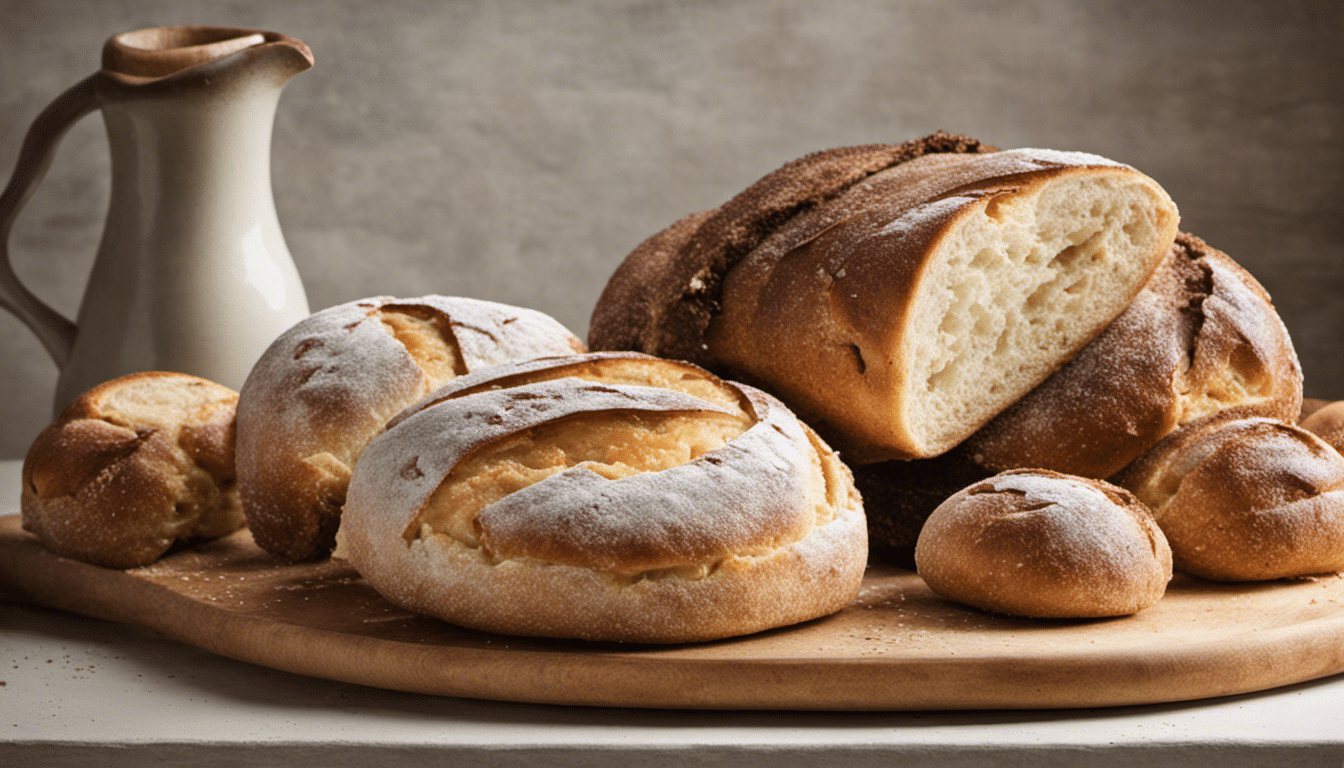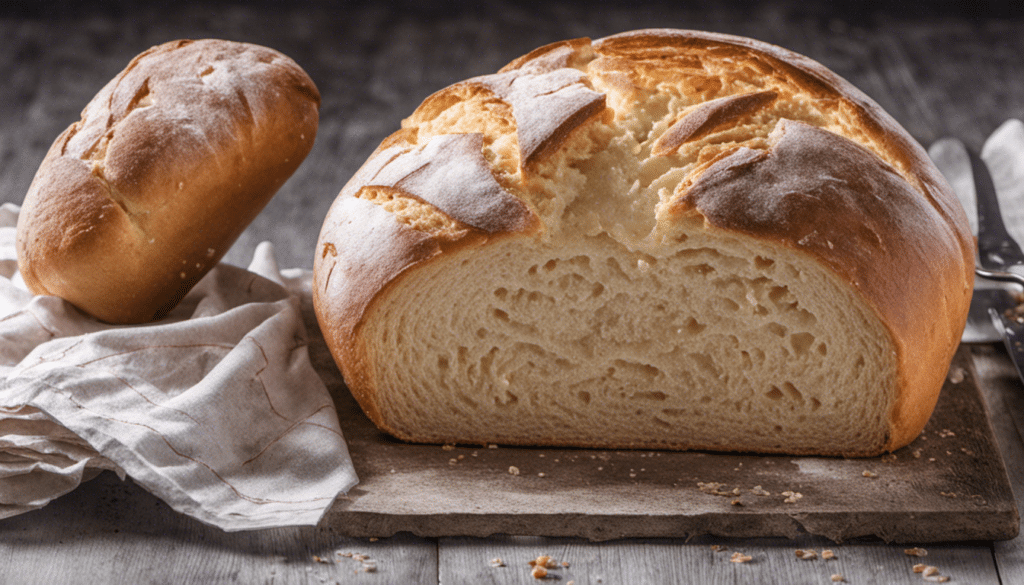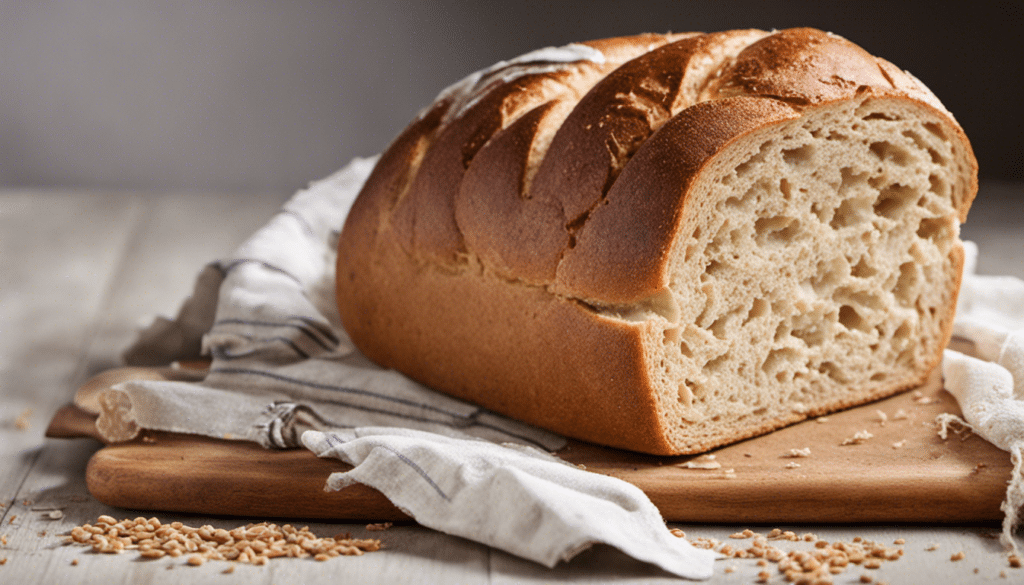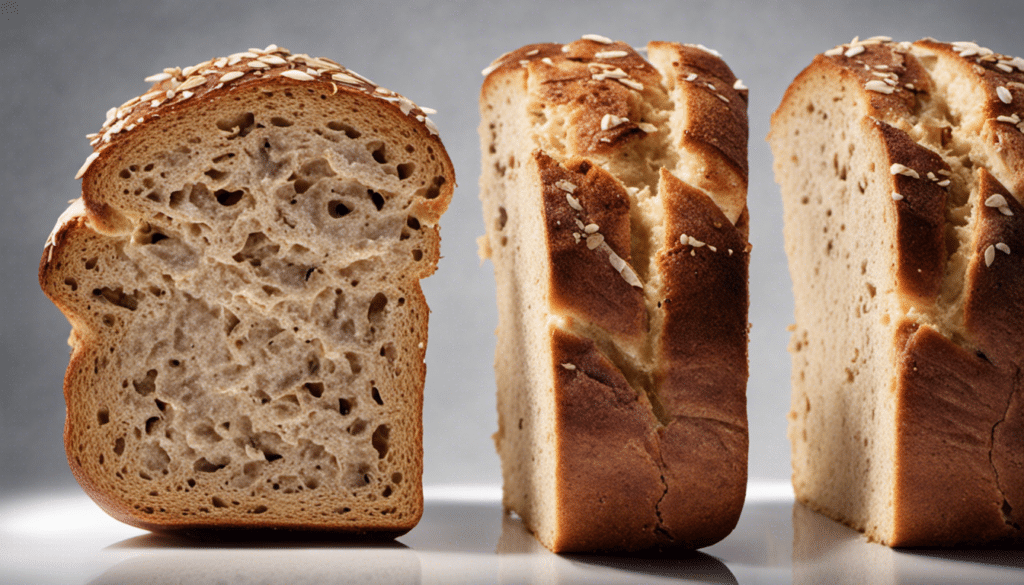| Prep: 2 hours | Cook: 20 mins | Difficulty: Medium | Serves: 6 |
| kcal | fat | saturates | carbs |
| 224 | 1.2g | 0.2g | 45g |
| sugars | fibre | protein | salt |
| 1.5g | 2g | 7.5g | 0.4g |
About Blaa
Welcome to the wonderful world of Blaa, a delightfully unique bread hailing straight from the heart of Ireland. Traditionally, this soft, doughy bread is consumed fresh, and is a quintessential part of Irish breakfast tables. Who wouldn’t love to start their day with a fresh piece of Blaa slathered with butter or filled with pork sausages? For those unfamiliar with Blaa, it might remind you of the softness of a brioche or the comforting familiarity of a milk bun. But don’t be fooled, Blaa holds its own with a simple and unassuming charm that is uniquely its own.
The History and Significance of Blaa:
A true embodiment of Irish culinary culture, Blaa dates back to the 17th century, when the French Huguenots introduced this pocket-friendly snack to the Irish masses. This humble bread, now a heartbeat of the Waterford region of Ireland, has even secured Protected Geographical Indication status from the European Commission. That means that only bread produced in this region can officially—and legally—be called Blaa!
Baking Blaa:
Making Blaa is a simple yet interesting process, where the objective is to maintain the bread’s distinctive fluffy interior and soft crust. Key to achieving this is a delicate balance between the bread flour, yeast, sugar, water, and salt. Also, a generous dusting of flour before baking is what gives Blaa its trademark rustic, powdery appearance.
Despite its fluffy texture, the dough requires a certain robustness while kneading, but don’t worry, your efforts will yield the heavenly aroma of freshly baked bread and the distinct taste that only a homemade Blaa can offer.
Pairing Suggestions:
Though Blaa is delicious enough to stand alone, this bread’s versatility means it can be enjoyed as an accompaniment to a variety of dishes. A popular choice is to fill it with bacon for an Irish bacon blaa, but it’s also perfect as an accompaniment to a hearty soup or stew. On the sweet side, Blaa makes an excellent base for bread pudding. A little creativity can go a long way in discovering new and delightful ways to incorporate Blaa into your meals.
In conclusion, Blaa is a veritable culinary treat that brings a piece of history and taste of Irish culture to your table. Try making your own blaa, and get a taste of this Irish delicacy right in the comfort of your home.
What You’ll Need
- 1 packet (0.25 ounces) of active dry yeast
- 1 teaspoon of sugar
- 1 1/3 cups of warm water (110 degrees F/45 degrees C)
- 3 1/2 cups of bread flour
- 1 teaspoon of salt
- 1/2 cup of bread flour for dusting
Method
Step One
Start by dissolving the packet of active dry yeast and a teaspoon of sugar in 1 1/3 cups of warm water. Let it stand until the yeast softens and begins to form a creamy foam, this should take about 5 minutes.
Step Two
In a large bowl, combine the yeast mixture, 3 1/2 cups of bread flour, and salt. Stir until the mixture is well combined.
Step Three
On a floured surface, knead the dough until it’s smooth and elastic. This usually takes about 10 minutes. If the dough is too sticky, you can add a bit more flour, just be careful not to add too much.
Step Four
Now, lightly oil a large bowl, place the dough in the bowl, and turn to coat with oil.
Step Five
Cover with a light cloth and let rise in a warm place until doubled in volume. That should about 1 to 2 hours.
Step Six
Preheat your oven to 425 degrees F (220 degrees C). Gently form the dough into 8 equal pieces and form into round buns.
Step Seven
Place the buns onto a baking tray, cover with a damp cloth and let rise until doubled in volume. This takes about 30 minutes.
Step Eight
Dust the buns with 1/2 cup of bread flour and bake in the preheated oven until the tops turn golden brown and the bottom of the buns sound hollow when tapped. This is usually about 15 minutes.
Step Nine
After baking, move the buns onto a wire rack to cool. And there you have your homemade Blaa!




